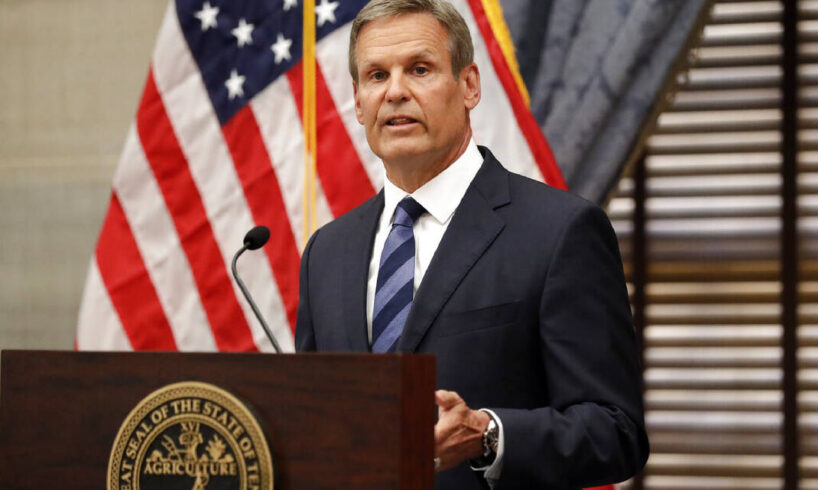
The Memphis Regional Megasite has been built out in Tennessee as a planned site for a large business operation for years.
As recently as June, $52 million was committed to the 4,100-acre site in west Tennessee for wastewater and water treatment upgrades, making the total spent by the state at the site $174 million.
Gov. Bill Lee and executives from Ford Motor Company and SK Innovation unveiled plans Tuesday for the megasite. Those plans call for a $5.6 billion investment from Ford and SK to build a 3,600-acre megacampus that will produce Ford’s new F-Series of electric trucks starting in 2025. News of the development was announced Monday.
“My thoughts go to my many colleagues in the Legislature and throughout various administrations who had the vision to appropriate funds and develop this parcel of land in west Tennessee for just such an opportunity,” House Minority Leader Karen Camper, D-Memphis, said. “We were tenacious and had faith that this day would arrive. The Memphis megasite has attracted the right tenant at the right time, and I want to thank everyone throughout the years who worked to make this possible.”
The development is expected to have a large effect on Tennessee’s economy, from the estimated 5,800 permanent jobs created to 32,000 temporary construction jobs and 27,000 jobs, both direct and indirect, expected to be sustained by the project.
The Memphis project is part of an $11.4 billion investment from Ford that includes two vehicle battery plants in Kentucky.
“This is a transformative moment where Ford will lead America’s transition to electric vehicles and usher in a new era of clean, carbon-neutral manufacturing,” Ford Executive Chair Bill Ford said.
The Memphis megasite will produce Ford’s electric F-Series of trucks and “supports the company’s longer-term goal to create a sustainable American manufacturing ecosystem, and to accelerate its progress towards achieving carbon neutrality, backed by science-based targets in line with the Paris Climate Agreement,” according to the announcement. Ford expects 40% to 50% of its global vehicle volume to be fully electric by 2030.
“This is a huge victory for our state and the west Tennessee region. And it has been a long time coming,” Tennessee Lt. Gov. Randy McNally said about the announcement. “It is no secret that the megasite’s failure to attract a tenant has been a long-term disappointment for our state.
“Today’s announcement wipes that all away. I could not be happier that Ford will be making this type of investment in our state. While Tennessee’s economy has always been strong, some areas of our state have been left behind. A major manufacturing facility in this area will transform the economy of west Tennessee and provide high-quality, high-paying jobs for the entire region.”
The state also will be opening a new Tennessee College of Applied Technology (TCAT) campus on the megasite, located 45 miles northeast of Memphis in Stanton. TCAT will focus training “on electric vehicle and battery manufacturing and repair with the curriculum concentrating on mechatronics engineering and automechanics.”
The Ford and SK Innovation project was the second of two large electric vehicle announcements in Tennessee in 2021. General Motors and LG Energy Solutions unveiled plans in April to build a $2.3 billion Ultium Cells electric vehicle battery plant in Spring Hill.
That project accepted $60 million in incentive grants from Tennessee to build the 2.8-million-square-foot plant. The state plans to give Ford Motor Company and SK Innovations $500 million in incentives to build its Blue Oval City megacampus.
That incentive commitment to Ford, however, means Lee will call a special legislative session this fall to address funding for the incentive.
Each day the House and Senate meet costs $30,750 in per diem for lawmakers, while each round trip for all lawmakers costs taxpayers $15,474 in mileage, according to Connie Ridley, the director of Tennessee’s Office of Legislative Administration.
This article was originally posted on Tennessee’s $174M investment in Memphis megasite pays off with $5.6B Ford deal